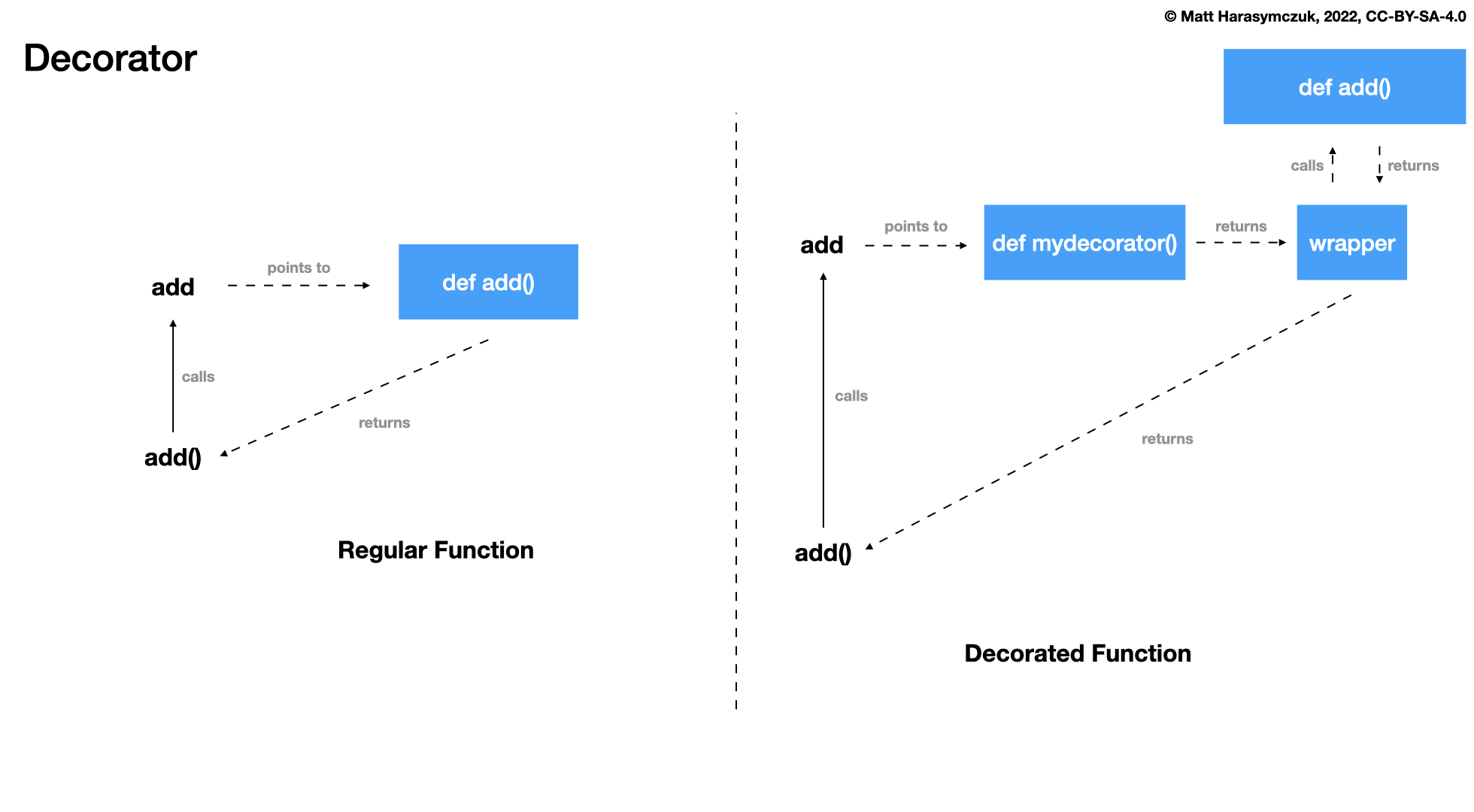11.1. Decorator About¶
Decorator is an object, which takes another object as it's argument
Since Python 2.4: PEP 318 -- Decorators for Functions and Methods
Since Python 3.9: PEP 614 -- Relaxing Grammar Restrictions On Decorators
Decorator can do things before call
Decorator can do things after call
Decorator can modify arguments
Decorator can modify returned value
Decorator can avoid calling
Decorator can modify globals
Decorator can add or change metadata

In Python, a decorator is a function that modifies the behavior of another function. It takes a function as input and returns a modified version of that function. Decorators are a powerful feature of Python that allows you to add functionality to a function without modifying its source code.
Decorators are defined using the "@" symbol followed by the name of the decorator function. When a function is decorated, the decorator function is called with the original function as its argument. The decorator function can then modify the behavior of the original function by adding new functionality or modifying its existing behavior.
Here is an example of a simple decorator that adds a greeting to a function:
>>> def greeting_decorator(func):
... def wrapper():
... print('Before')
... func()
... print('After')
... return wrapper
>>>
>>> @greeting_decorator
... def my_function():
... print('This is my function.')
>>>
>>> my_function()
Before
This is my function.
After
In this example, the greeting_decorator function takes a function as input
and returns a new function wrapper that adds a greeting before and after
calling the original function. The @greeting_decorator syntax is used to
apply the decorator to the my_function function. When my_function is
called, it will now print "Before", execute its original code, and then
print "After".
11.1.1. Syntax¶
funcis a reference to function which is being decoratedargsarbitrary number of positional argumentskwargsarbitrary number of keyword argumentsBy calling
func(*args, **kwargs)you actually run original (wrapped) function with it's original arguments
>>> def mydecorator(func):
... def wrapper(*args, **kwargs):
... return func(*args, **kwargs)
... return wrapper
>>>
>>>
>>> @mydecorator
... def myfunction(*args, **kwargs):
... pass
>>>
>>>
>>> myfunction()
11.1.2. Decoration¶
Syntax:
>>> @mydecorator
... def myfunction(*args, **kwargs):
... ...
Is equivalent to:
>>> myfunction = mydecorator(myfunction)